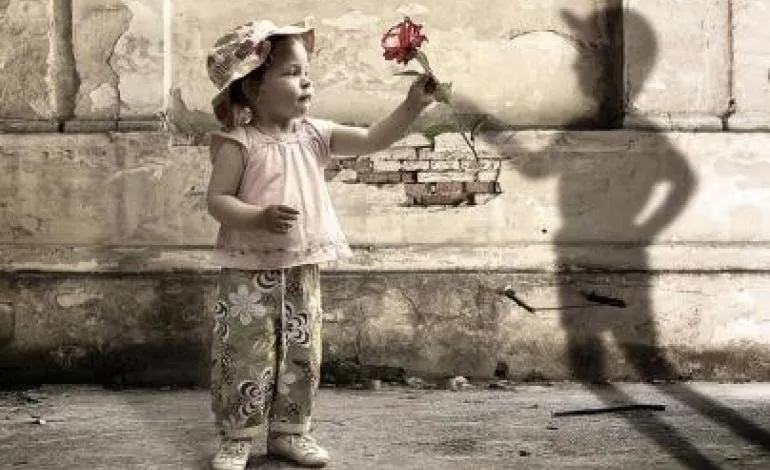Have you ever seen your little one having a conversation with something or somebody you cannot see?
When you ask them who they are talking to, some will introduce youto their "friend" or others will be shy about it.
Having an imaginary friend is normal for kids between 3 and 4 years of age and can be a magical person or an animal and can also change as the child grows older.

Children who has imaginary friend are usually only children or the oldest, but this does not mean your child is lonely, this is usually a sign that your child is creative and imaginative.
This is nothing to be worried about. As the child grows older, the real world starts taking older and in time the imaginary friend also dissapears.
How does an imaginary friend help your child?
There are different ways in how an imaginary friend can help your child
- it helps your child to play creative games and try out new ways to do it
- it helps your child to learn to get on with others
- it is a way for your child to test out different emotions like fear, anger and happiness
- it gives the child the opportunity to control something during a time when everything is controlled for them
- it allows your child to have a private life where adults are not a part of it
- it can help a child with stressful situations and give them someone to talk to

Is it a problem if your child has an imaginary friend?
Imaginary friends are part of a child's normal development and it can help a child deal with daily stresses. It can even help the parents to discover if there are any problems in a child's life.
Sometimes children will use the imaginary friend to get out of situations they do not want to do, like going to bed. In situations like this you as the parents must then speak in a way that you address both your child and the imaginary friend. For instance - I know Peter says you must not go to bed, but I am your mum and I am telling you it is time to go to sleep, so Peter can also come if he likes.
There is no need to worry if your child interacts with you and other children while having an imaginary friend, but if your child insists on only spending time with his/her imaginary friend you will may have to look into the situation and try and determine what the reason for this is and help him/her to enjoy real things as well.

What you as a parent can do if your child has an imaginary friend
- let your child take the lead in how you must respond to his/her imaginary friend. If they do not want you to be part of a discussion, stay out of it or take part if you are invited. If they want you to leave open a seat for the imaginary friend or not sit on a certain chair or put an extra plate on the table, then do it.
- do not get too involved and take over the story - your child has to work out what is real and what not.
- as your child gets older, provide more opportunities and experiences with real children and real thing so that the imaginary friend will in time become less interesting.
Most important to remember is that this is a natural phase of growing up and eventually your child will find other interests and the imaginary friend phase will disappear on its own, so do not panic and start telling your child there is nobody there and he/she is just imagining things. (this is a good time to start using your imagination as well and have some fun with your child and see life through their eyes.)


Team South Africa banner designed by @bearone